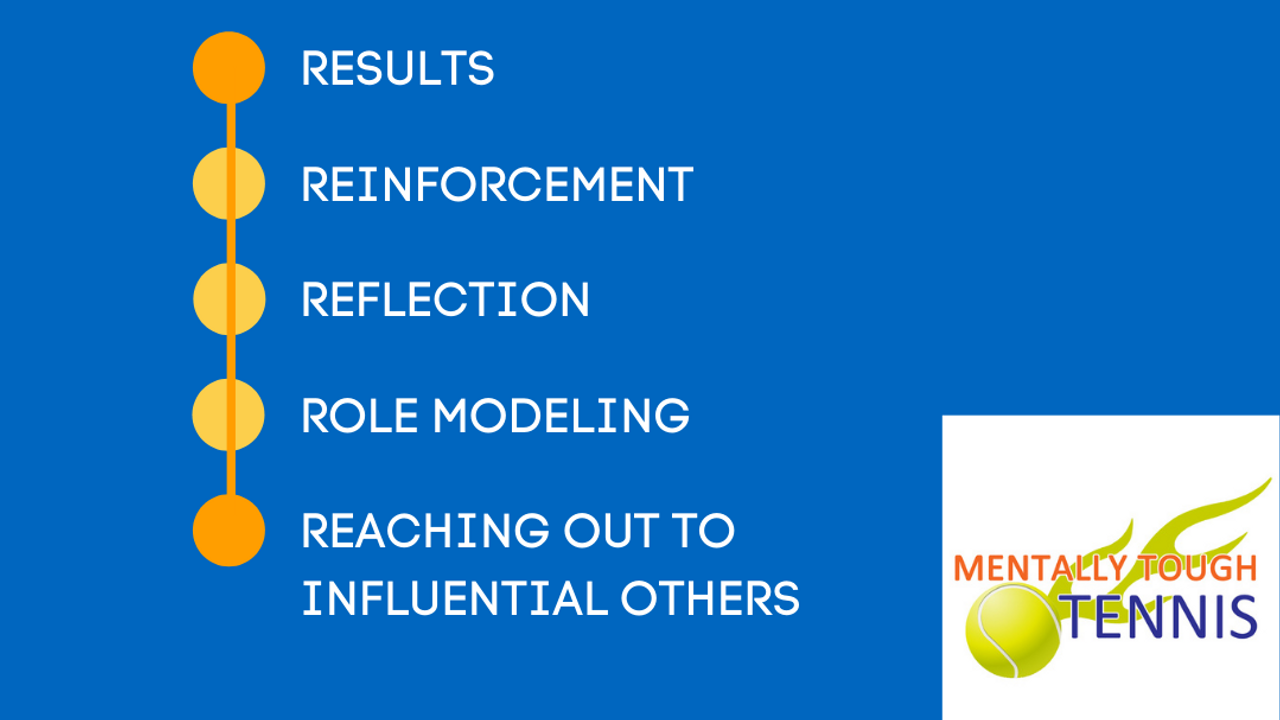WELCOME TO OUR FREE ARTICLES, VIDEOS, AND RESOURCES
Would you like us to send our best free tips, tools, and special offers straight to your inbox?
The 5 R’s to Positively Shape Players’ Mental Experiences Over Time

If you've been following my communications for a while you'll be aware that I believe trying to control unintentional difficult thoughts (e.g., outcome thoughts, negative thinking) and emotions (anxiety, frustration) during matches is detrimental to long term mental toughness.
What we do want to do however is communicate (if you're a coach or parent), and reflect in ways that lead to more helpful mental experiences over time.
Here are 5 ways we can do this:
1.) Results
The most powerful way to improve internal experiences in a given performance situation when encountered in the future is to commit to desired actions now.
For example, when a player performs well while experiencing difficult internal states, this positive performance outcome will likely lead to more adaptive interpretations of that situation when experienced again.
The player will also implicitly learn from this experience that desirable internal states are not required for effective performance, therefore ...
Do Former Successful Pro Players Make Better Coaches?
In watching Rafa and Roger put on their coaching hats during the Laver Cup, it made me reflect on the age old debate. Do former successful pros make better coaches?
I commonly hear former professional players supporting the theory that a successful career at the top level is required to transform into a successful coach. But of course, in the corridors those who have not played at the highest level argue that having been a great athlete may in fact hinder coaching effectiveness.
So who is right?
I would say to a degree neither. There are obvious advantages in having been a great player but there may also be some potential drawbacks. Let’s take a look at both sides of the coin.
Advantages of Former Successful Professional Players Becoming Coaches
Credibility…
The first and most obvious advantage, as we saw with Roger and Rafa, is that former successful players have instant credibility regarding what they say. Players will be more likely to listen and respect what former el...
